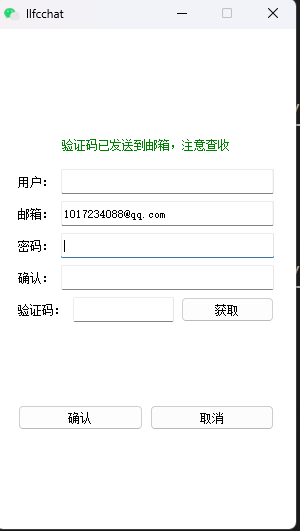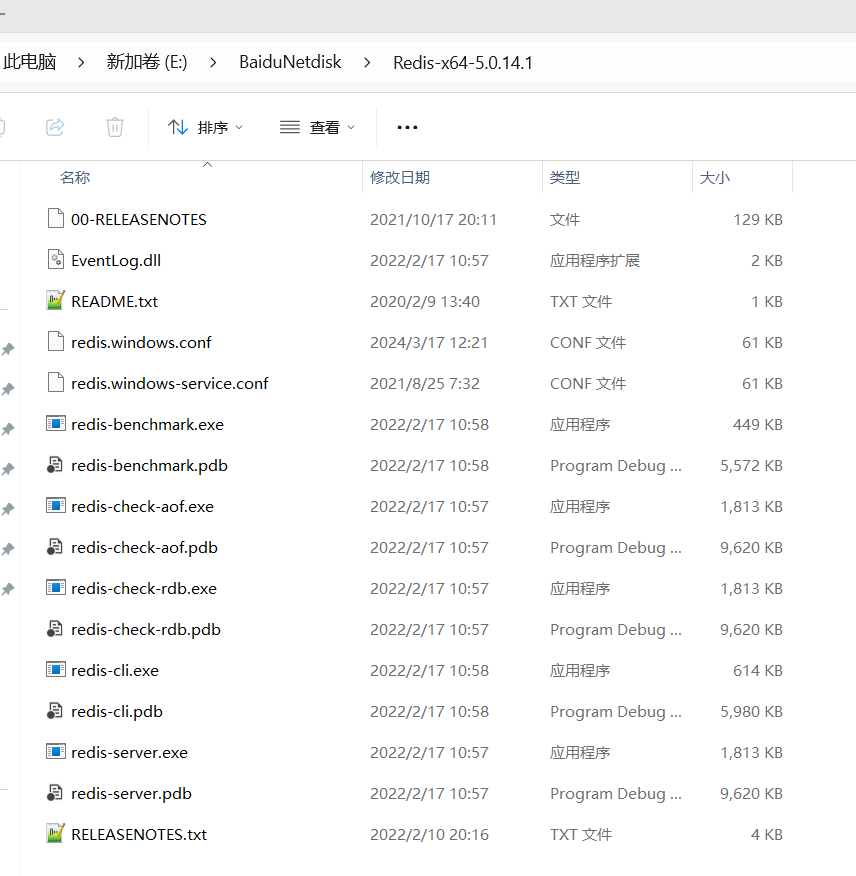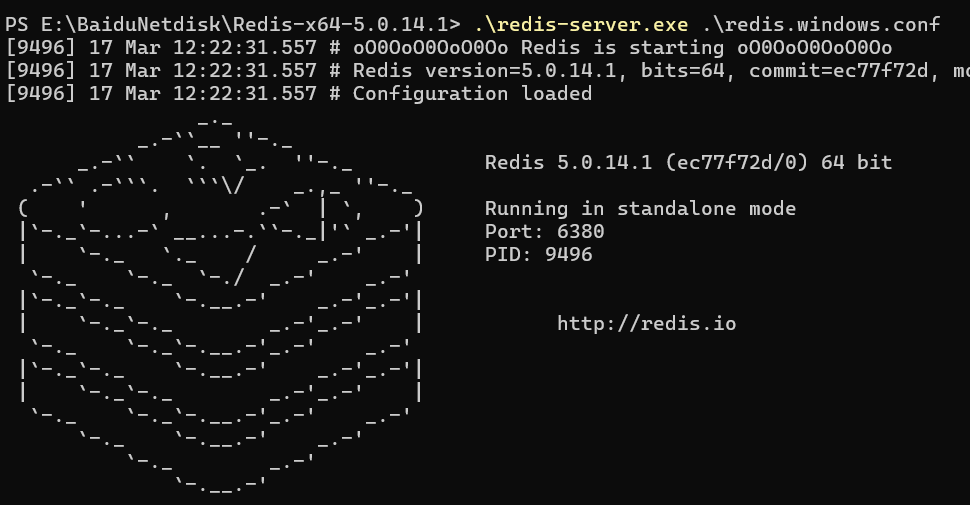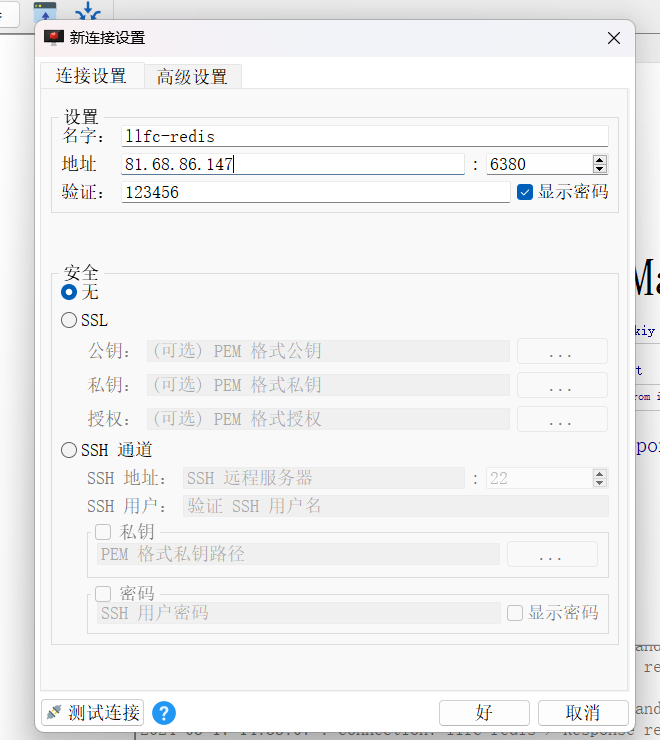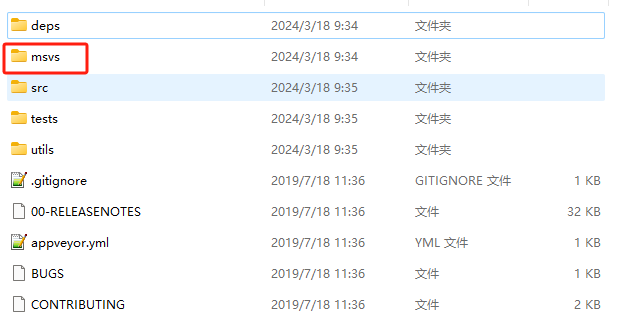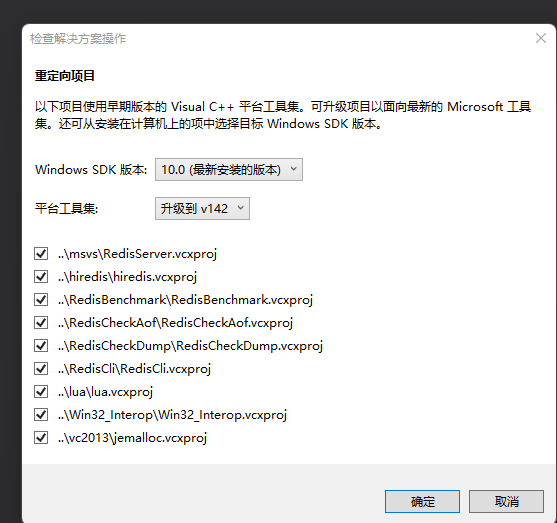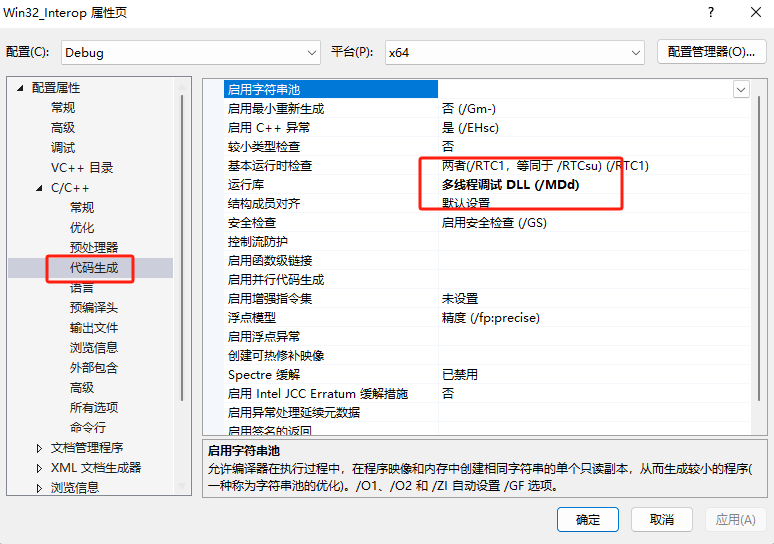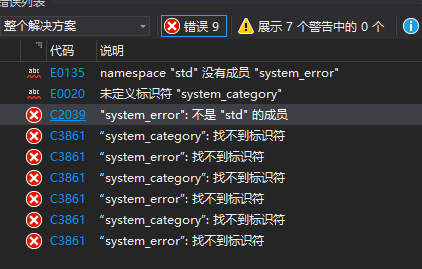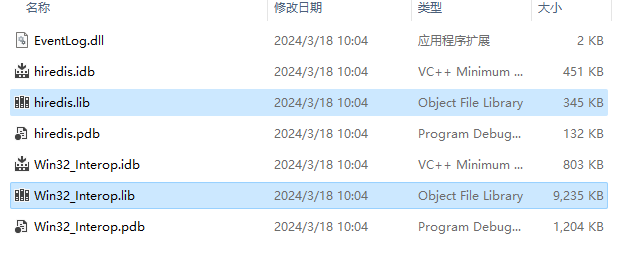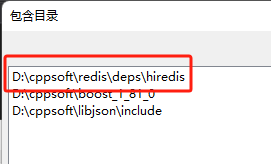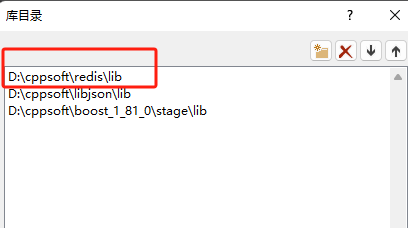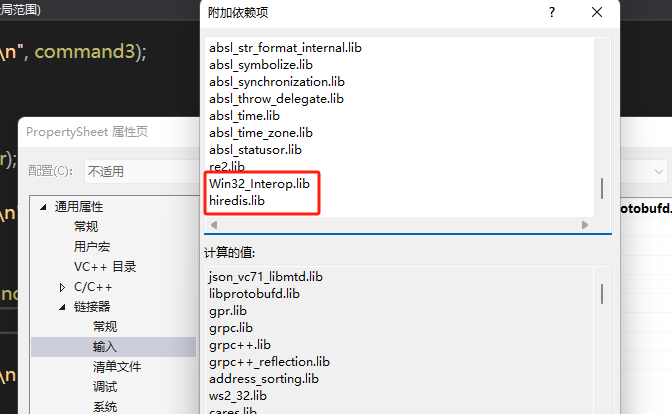邮箱验证服务联调
我们启动GateServer和VarifyServer
我们启动客户端,点击注册按钮进入注册界面,输入邮箱并且点击获取验证码
GateServer收到Client发送的请求后,会调用grpc 服务 访问VarifyServer,VarifyServer会随机生成验证码,并且调用邮箱模块发送邮件给指定邮箱。而且把发送的结果给GateServer,GateServer再将消息回传给客户端。
设置验证码过期
我们的验证码是要设置过期的,可以用redis管理过期的验证码自动删除,key为邮箱,value为验证码,过期时间为3min。
windows 安装redis服务
windows 版本下载地址:
https://github.com/tporadowski/redis/releases
下载速度慢可以去我的网盘
链接: https://pan.baidu.com/s/1v_foHZLvBeJQMePSGnp4Ow?pwd=yid3 提取码: yid3
下载完成后解压
修改redis.windows.conf, 并且修改端口
port 6380
找到requirepass foobared,下面添加requirepass
# requirepass foobared
requirepass 123456
启动redis 服务器.\redis-server.exe .\redis.windows.conf
启动客户端 .\redis-cli.exe -p 6380, 输入密码登录成功
Linux 安装redis服务
Linux安装容器后,直接用容器启动redis
docker run -d --name llfc-redis -p 6380:6379 redis --requirepass "123456"
为了方便测试能否链接以及以后查看数据,大家可以下载redis desktop manager
官网链接 redisdesktop.com/
下载速度慢可以去我的网盘
链接: https://pan.baidu.com/s/1v_foHZLvBeJQMePSGnp4Ow?pwd=yid3 提取码: yid3
下载后安装
设置好ip和密码,点击测试连接连通就成功了
widows编译和配置redis
Linux的redis库直接编译安装即可,windows反而麻烦一些,我们先阐述windows环境如何配置redis库, C++ 的redis库有很多种,最常用的有hredis和redis-plus-plus. 我们用redis-plus-plus. 这里介绍一种简单的安装方式---vcpkg
先安装vcpkg, 源码地址
https://github.com/microsoft/vcpkg/releases
下载源码后
windows版本redis下载地址
https://github.com/microsoftarchive/redis
因为是源码,所以进入msvc目录
用visual studio打开sln文件,弹出升级窗口, 我的是vs2019所以升级到142
只需要生成hiredis工程和Win32_Interop工程即可,分别点击生成,生成hiredis.lib和Win32_Interop.lib即可
右键两个工程的属性,代码生成里选择运行时库加载模式为MDD(Debug模式动态运行加载),为了兼容我们其他的库,其他的库也是MDD模式
编译Win32_Interop.lib时报错, system_error不是std成员,
解决办法为在Win32_variadicFunctor.cpp和Win32_FDAPI.cpp添加
#include <system_error>,再右键生成成功
将hiredis.lib和Win32_Interop.lib拷贝到D:\cppsoft\reids\lib
将redis-3.0\deps和redis-3.0\src文件夹拷贝到D:\cppsoft\reids
然后我们在visual studio中配置VC++ 包含目录
配置VC++库目录
然后在链接器->输入->附加依赖项中添加
代码测试
我们需要写代码测试库配置的情况
void TestRedis() {
//连接redis 需要启动才可以进行连接
//redis默认监听端口为6387 可以再配置文件中修改
redisContext* c = redisConnect("127.0.0.1", 6380);
if (c->err)
{
printf("Connect to redisServer faile:%s\n", c->errstr);
redisFree(c); return;
}
printf("Connect to redisServer Success\n");
std::string redis_password = "123456";
redisReply* r = (redisReply*)redisCommand(c, "AUTH %s", redis_password);
if (r->type == REDIS_REPLY_ERROR) {
printf("Redis认证失败!\n");
}else {
printf("Redis认证成功!\n");
}
//为redis设置key
const char* command1 = "set stest1 value1";
//执行redis命令行
r = (redisReply*)redisCommand(c, command1);
//如果返回NULL则说明执行失败
if (NULL == r)
{
printf("Execut command1 failure\n");
redisFree(c); return;
}
//如果执行失败则释放连接
if (!(r->type == REDIS_REPLY_STATUS && (strcmp(r->str, "OK") == 0 || strcmp(r->str, "ok") == 0)))
{
printf("Failed to execute command[%s]\n", command1);
freeReplyObject(r);
redisFree(c); return;
}
//执行成功 释放redisCommand执行后返回的redisReply所占用的内存
freeReplyObject(r);
printf("Succeed to execute command[%s]\n", command1);
const char* command2 = "strlen stest1";
r = (redisReply*)redisCommand(c, command2);
//如果返回类型不是整形 则释放连接
if (r->type != REDIS_REPLY_INTEGER)
{
printf("Failed to execute command[%s]\n", command2);
freeReplyObject(r);
redisFree(c); return;
}
//获取字符串长度
int length = r->integer;
freeReplyObject(r);
printf("The length of 'stest1' is %d.\n", length);
printf("Succeed to execute command[%s]\n", command2);
//获取redis键值对信息
const char* command3 = "get stest1";
r = (redisReply*)redisCommand(c, command3);
if (r->type != REDIS_REPLY_STRING)
{
printf("Failed to execute command[%s]\n", command3);
freeReplyObject(r);
redisFree(c); return;
}
printf("The value of 'stest1' is %s\n", r->str);
freeReplyObject(r);
printf("Succeed to execute command[%s]\n", command3);
const char* command4 = "get stest2";
r = (redisReply*)redisCommand(c, command4);
if (r->type != REDIS_REPLY_NIL)
{
printf("Failed to execute command[%s]\n", command4);
freeReplyObject(r);
redisFree(c); return;
}
freeReplyObject(r);
printf("Succeed to execute command[%s]\n", command4);
//释放连接资源
redisFree(c);
}
在主函数中调用TestRedis,编译项目时发现编译失败,提示
在同时使用Redis连接和socket连接时,遇到了Win32_Interop.lib和WS2_32.lib冲突的问题, 因为我们底层用了socket作为网络通信,也用redis,导致两个库冲突。
引起原因主要是Redis库Win32_FDAPI.cpp有重新定义了socket的一些方法引起来冲突
extern "C" {
// Unix compatible FD based routines
fdapi_accept accept = NULL;
fdapi_access access = NULL;
fdapi_bind bind = NULL;
fdapi_connect connect = NULL;
fdapi_fcntl fcntl = NULL;
fdapi_fstat fdapi_fstat64 = NULL;
fdapi_fsync fsync = NULL;
fdapi_ftruncate ftruncate = NULL;
fdapi_freeaddrinfo freeaddrinfo = NULL;
fdapi_getaddrinfo getaddrinfo = NULL;
fdapi_getpeername getpeername = NULL;
fdapi_getsockname getsockname = NULL;
fdapi_getsockopt getsockopt = NULL;
fdapi_htonl htonl = NULL;
fdapi_htons htons = NULL;
fdapi_isatty isatty = NULL;
fdapi_inet_ntop inet_ntop = NULL;
fdapi_inet_pton inet_pton = NULL;
fdapi_listen listen = NULL;
fdapi_lseek64 lseek64 = NULL;
fdapi_ntohl ntohl = NULL;
fdapi_ntohs ntohs = NULL;
fdapi_open open = NULL;
fdapi_pipe pipe = NULL;
fdapi_poll poll = NULL;
fdapi_read read = NULL;
fdapi_select select = NULL;
fdapi_setsockopt setsockopt = NULL;
fdapi_socket socket = NULL;
fdapi_write write = NULL;
}
auto f_WSACleanup = dllfunctor_stdcall<int>("ws2_32.dll", "WSACleanup");
auto f_WSAFDIsSet = dllfunctor_stdcall<int, SOCKET, fd_set*>("ws2_32.dll", "__WSAFDIsSet");
auto f_WSAGetLastError = dllfunctor_stdcall<int>("ws2_32.dll", "WSAGetLastError");
auto f_WSAGetOverlappedResult = dllfunctor_stdcall<BOOL, SOCKET, LPWSAOVERLAPPED, LPDWORD, BOOL, LPDWORD>("ws2_32.dll", "WSAGetOverlappedResult");
auto f_WSADuplicateSocket = dllfunctor_stdcall<int, SOCKET, DWORD, LPWSAPROTOCOL_INFO>("ws2_32.dll", "WSADuplicateSocketW");
auto f_WSAIoctl = dllfunctor_stdcall<int, SOCKET, DWORD, LPVOID, DWORD, LPVOID, DWORD, LPVOID, LPWSAOVERLAPPED, LPWSAOVERLAPPED_COMPLETION_ROUTINE>("ws2_32.dll", "WSAIoctl");
auto f_WSARecv = dllfunctor_stdcall<int, SOCKET, LPWSABUF, DWORD, LPDWORD, LPDWORD, LPWSAOVERLAPPED, LPWSAOVERLAPPED_COMPLETION_ROUTINE>("ws2_32.dll", "WSARecv");
auto f_WSASocket = dllfunctor_stdcall<SOCKET, int, int, int, LPWSAPROTOCOL_INFO, GROUP, DWORD>("ws2_32.dll", "WSASocketW");
auto f_WSASend = dllfunctor_stdcall<int, SOCKET, LPWSABUF, DWORD, LPDWORD, DWORD, LPWSAOVERLAPPED, LPWSAOVERLAPPED_COMPLETION_ROUTINE>("ws2_32.dll", "WSASend");
auto f_WSAStartup = dllfunctor_stdcall<int, WORD, LPWSADATA>("ws2_32.dll", "WSAStartup");
auto f_ioctlsocket = dllfunctor_stdcall<int, SOCKET, long, u_long*>("ws2_32.dll", "ioctlsocket");
auto f_accept = dllfunctor_stdcall<SOCKET, SOCKET, struct sockaddr*, int*>("ws2_32.dll", "accept");
auto f_bind = dllfunctor_stdcall<int, SOCKET, const struct sockaddr*, int>("ws2_32.dll", "bind");
auto f_closesocket = dllfunctor_stdcall<int, SOCKET>("ws2_32.dll", "closesocket");
auto f_connect = dllfunctor_stdcall<int, SOCKET, const struct sockaddr*, int>("ws2_32.dll", "connect");
auto f_freeaddrinfo = dllfunctor_stdcall<void, addrinfo*>("ws2_32.dll", "freeaddrinfo");
auto f_getaddrinfo = dllfunctor_stdcall<int, PCSTR, PCSTR, const ADDRINFOA*, ADDRINFOA**>("ws2_32.dll", "getaddrinfo");
auto f_gethostbyname = dllfunctor_stdcall<struct hostent*, const char*>("ws2_32.dll", "gethostbyname");
auto f_getpeername = dllfunctor_stdcall<int, SOCKET, struct sockaddr*, int*>("ws2_32.dll", "getpeername");
auto f_getsockname = dllfunctor_stdcall<int, SOCKET, struct sockaddr*, int*>("ws2_32.dll", "getsockname");
auto f_getsockopt = dllfunctor_stdcall<int, SOCKET, int, int, char*, int*>("ws2_32.dll", "getsockopt");
auto f_htonl = dllfunctor_stdcall<u_long, u_long>("ws2_32.dll", "htonl");
auto f_htons = dllfunctor_stdcall<u_short, u_short>("ws2_32.dll", "htons");
auto f_listen = dllfunctor_stdcall<int, SOCKET, int>("ws2_32.dll", "listen");
auto f_ntohs = dllfunctor_stdcall<u_short, u_short>("ws2_32.dll", "ntohs");
auto f_ntohl = dllfunctor_stdcall<u_long, u_long>("ws2_32.dll", "ntohl");
auto f_recv = dllfunctor_stdcall<int, SOCKET, char*, int, int>("ws2_32.dll", "recv");
auto f_select = dllfunctor_stdcall<int, int, fd_set*, fd_set*, fd_set*, const struct timeval*>("ws2_32.dll", "select");
auto f_send = dllfunctor_stdcall<int, SOCKET, const char*, int, int>("ws2_32.dll", "send");
auto f_setsockopt = dllfunctor_stdcall<int, SOCKET, int, int, const char*, int>("ws2_32.dll", "setsockopt");
auto f_socket = dllfunctor_stdcall<SOCKET, int, int, int>("ws2_32.dll", "socket");
去掉Redis库里面的socket的函数的重定义,把所有使用这些方法的地方都改为下面对应的函数
int FDAPI_accept(int rfd, struct sockaddr *addr, socklen_t *addrlen);
int FDAPI_access(const char *pathname, int mode);
int FDAPI_bind(int rfd, const struct sockaddr *addr, socklen_t addrlen);
int FDAPI_connect(int rfd, const struct sockaddr *addr, size_t addrlen);
int FDAPI_fcntl(int rfd, int cmd, int flags);
int FDAPI_fstat64(int rfd, struct __stat64 *buffer);
void FDAPI_freeaddrinfo(struct addrinfo *ai);
int FDAPI_fsync(int rfd);
int FDAPI_ftruncate(int rfd, PORT_LONGLONG length);
int FDAPI_getaddrinfo(const char *node, const char *service, const struct addrinfo *hints, struct addrinfo **res);
int FDAPI_getsockopt(int rfd, int level, int optname, void *optval, socklen_t *optlen);
int FDAPI_getpeername(int rfd, struct sockaddr *addr, socklen_t * addrlen);
int FDAPI_getsockname(int rfd, struct sockaddr* addrsock, int* addrlen);
u_long FDAPI_htonl(u_long hostlong);
u_short FDAPI_htons(u_short hostshort);
u_int FDAPI_ntohl(u_int netlong);
u_short FDAPI_ntohs(u_short netshort);
int FDAPI_open(const char * _Filename, int _OpenFlag, int flags);
int FDAPI_pipe(int *pfds);
int FDAPI_poll(struct pollfd *fds, nfds_t nfds, int timeout);
int FDAPI_listen(int rfd, int backlog);
int FDAPI_socket(int af, int type, int protocol);
int FDAPI_select(int nfds, fd_set *readfds, fd_set *writefds, fd_set *exceptfds, struct timeval *timeout);
int FDAPI_setsockopt(int rfd, int level, int optname, const void *optval, socklen_t optlen);
ssize_t FDAPI_read(int rfd, void *buf, size_t count);
ssize_t FDAPI_write(int rfd, const void *buf, size_t count);
考虑大家修改起来很麻烦,可以下载我的代码
https://gitee.com/secondtonone1/windows-redis
再次编译生成hredis和Win32_Interop的lib库,重新配置下,项目再次编译就通过了。
封装redis操作类
因为hredis提供的操作太别扭了,我们手动封装redis操作类,简化调用流程。
封装的类叫RedisMgr,它是个单例类并且可接受回调,按照我们之前的风格
class RedisMgr: public Singleton<RedisMgr>,
public std::enable_shared_from_this<RedisMgr>
{
friend class Singleton<RedisMgr>;
public:
~RedisMgr();
bool Connect(const std::string& host, int port);
bool Get(const std::string &key, std::string& value);
bool Set(const std::string &key, const std::string &value);
bool Auth(const std::string &password);
bool LPush(const std::string &key, const std::string &value);
bool LPop(const std::string &key, std::string& value);
bool RPush(const std::string& key, const std::string& value);
bool RPop(const std::string& key, std::string& value);
bool HSet(const std::string &key, const std::string &hkey, const std::string &value);
bool HSet(const char* key, const char* hkey, const char* hvalue, size_t hvaluelen);
std::string HGet(const std::string &key, const std::string &hkey);
bool Del(const std::string &key);
bool ExistsKey(const std::string &key);
void Close();
private:
RedisMgr();
redisContext* _connect;
redisReply* _reply;
};
连接操作
bool RedisMgr::Connect(const std::string &host, int port)
{
this->_connect = redisConnect(host.c_str(), port);
if (this->_connect != NULL && this->_connect->err)
{
std::cout << "connect error " << this->_connect->errstr << std::endl;
return false;
}
return true;
}
获取key对应的value
bool RedisMgr::Get(const std::string &key, std::string& value)
{
this->_reply = (redisReply*)redisCommand(this->_connect, "GET %s", key.c_str());
if (this->_reply == NULL) {
std::cout << "[ GET " << key << " ] failed" << std::endl;
freeReplyObject(this->_reply);
return false;
}
if (this->_reply->type != REDIS_REPLY_STRING) {
std::cout << "[ GET " << key << " ] failed" << std::endl;
freeReplyObject(this->_reply);
return false;
}
value = this->_reply->str;
freeReplyObject(this->_reply);
std::cout << "Succeed to execute command [ GET " << key << " ]" << std::endl;
return true;
}
设置key和value
bool RedisMgr::Set(const std::string &key, const std::string &value){
//执行redis命令行
this->_reply = (redisReply*)redisCommand(this->_connect, "SET %s %s", key.c_str(), value.c_str());
//如果返回NULL则说明执行失败
if (NULL == this->_reply)
{
std::cout << "Execut command [ SET " << key << " "<< value << " ] failure ! " << std::endl;
freeReplyObject(this->_reply);
return false;
}
//如果执行失败则释放连接
if (!(this->_reply->type == REDIS_REPLY_STATUS && (strcmp(this->_reply->str, "OK") == 0 || strcmp(this->_reply->str, "ok") == 0)))
{
std::cout << "Execut command [ SET " << key << " " << value << " ] failure ! " << std::endl;
freeReplyObject(this->_reply);
return false;
}
//执行成功 释放redisCommand执行后返回的redisReply所占用的内存
freeReplyObject(this->_reply);
std::cout << "Execut command [ SET " << key << " " << value << " ] success ! " << std::endl;
return true;
}
密码认证
bool RedisMgr::Auth(const std::string &password)
{
this->_reply = (redisReply*)redisCommand(this->_connect, "AUTH %s", password.c_str());
if (this->_reply->type == REDIS_REPLY_ERROR) {
std::cout << "认证失败" << std::endl;
//执行成功 释放redisCommand执行后返回的redisReply所占用的内存
freeReplyObject(this->_reply);
return false;
}
else {
//执行成功 释放redisCommand执行后返回的redisReply所占用的内存
freeReplyObject(this->_reply);
std::cout << "认证成功" << std::endl;
return true;
}
}
左侧push
bool RedisMgr::LPush(const std::string &key, const std::string &value)
{
this->_reply = (redisReply*)redisCommand(this->_connect, "LPUSH %s %s", key.c_str(), value.c_str());
if (NULL == this->_reply)
{
std::cout << "Execut command [ LPUSH " << key << " " << value << " ] failure ! " << std::endl;
freeReplyObject(this->_reply);
return false;
}
if (this->_reply->type != REDIS_REPLY_INTEGER || this->_reply->integer <= 0) {
std::cout << "Execut command [ LPUSH " << key << " " << value << " ] failure ! " << std::endl;
freeReplyObject(this->_reply);
return false;
}
std::cout << "Execut command [ LPUSH " << key << " " << value << " ] success ! " << std::endl;
freeReplyObject(this->_reply);
return true;
}
左侧pop
bool RedisMgr::LPop(const std::string &key, std::string& value){
this->_reply = (redisReply*)redisCommand(this->_connect, "LPOP %s ", key.c_str());
if (_reply == nullptr || _reply->type == REDIS_REPLY_NIL) {
std::cout << "Execut command [ LPOP " << key<< " ] failure ! " << std::endl;
freeReplyObject(this->_reply);
return false;
}
value = _reply->str;
std::cout << "Execut command [ LPOP " << key << " ] success ! " << std::endl;
freeReplyObject(this->_reply);
return true;
}
右侧push
bool RedisMgr::RPush(const std::string& key, const std::string& value) {
this->_reply = (redisReply*)redisCommand(this->_connect, "RPUSH %s %s", key.c_str(), value.c_str());
if (NULL == this->_reply)
{
std::cout << "Execut command [ RPUSH " << key << " " << value << " ] failure ! " << std::endl;
freeReplyObject(this->_reply);
return false;
}
if (this->_reply->type != REDIS_REPLY_INTEGER || this->_reply->integer <= 0) {
std::cout << "Execut command [ RPUSH " << key << " " << value << " ] failure ! " << std::endl;
freeReplyObject(this->_reply);
return false;
}
std::cout << "Execut command [ RPUSH " << key << " " << value << " ] success ! " << std::endl;
freeReplyObject(this->_reply);
return true;
}
右侧pop
bool RedisMgr::RPop(const std::string& key, std::string& value) {
this->_reply = (redisReply*)redisCommand(this->_connect, "RPOP %s ", key.c_str());
if (_reply == nullptr || _reply->type == REDIS_REPLY_NIL) {
std::cout << "Execut command [ RPOP " << key << " ] failure ! " << std::endl;
freeReplyObject(this->_reply);
return false;
}
value = _reply->str;
std::cout << "Execut command [ RPOP " << key << " ] success ! " << std::endl;
freeReplyObject(this->_reply);
return true;
}
HSet操作
bool RedisMgr::HSet(const std::string &key, const std::string &hkey, const std::string &value) {
this->_reply = (redisReply*)redisCommand(this->_connect, "HSET %s %s %s", key.c_str(), hkey.c_str(), value.c_str());
if (_reply == nullptr || _reply->type != REDIS_REPLY_INTEGER ) {
std::cout << "Execut command [ HSet " << key << " " << hkey <<" " << value << " ] failure ! " << std::endl;
freeReplyObject(this->_reply);
return false;
}
std::cout << "Execut command [ HSet " << key << " " << hkey << " " << value << " ] success ! " << std::endl;
freeReplyObject(this->_reply);
return true;
}
bool RedisMgr::HSet(const char* key, const char* hkey, const char* hvalue, size_t hvaluelen)
{
const char* argv[4];
size_t argvlen[4];
argv[0] = "HSET";
argvlen[0] = 4;
argv[1] = key;
argvlen[1] = strlen(key);
argv[2] = hkey;
argvlen[2] = strlen(hkey);
argv[3] = hvalue;
argvlen[3] = hvaluelen;
this->_reply = (redisReply*)redisCommandArgv(this->_connect, 4, argv, argvlen);
if (_reply == nullptr || _reply->type != REDIS_REPLY_INTEGER) {
std::cout << "Execut command [ HSet " << key << " " << hkey << " " << hvalue << " ] failure ! " << std::endl;
freeReplyObject(this->_reply);
return false;
}
std::cout << "Execut command [ HSet " << key << " " << hkey << " " << hvalue << " ] success ! " << std::endl;
freeReplyObject(this->_reply);
return true;
}
HGet操作
std::string RedisMgr::HGet(const std::string &key, const std::string &hkey)
{
const char* argv[3];
size_t argvlen[3];
argv[0] = "HGET";
argvlen[0] = 4;
argv[1] = key.c_str();
argvlen[1] = key.length();
argv[2] = hkey.c_str();
argvlen[2] = hkey.length();
this->_reply = (redisReply*)redisCommandArgv(this->_connect, 3, argv, argvlen);
if (this->_reply == nullptr || this->_reply->type == REDIS_REPLY_NIL) {
freeReplyObject(this->_reply);
std::cout << "Execut command [ HGet " << key << " "<< hkey <<" ] failure ! " << std::endl;
return "";
}
std::string value = this->_reply->str;
freeReplyObject(this->_reply);
std::cout << "Execut command [ HGet " << key << " " << hkey << " ] success ! " << std::endl;
return value;
}
Del 操作
bool RedisMgr::Del(const std::string &key)
{
this->_reply = (redisReply*)redisCommand(this->_connect, "DEL %s", key.c_str());
if (this->_reply == nullptr || this->_reply->type != REDIS_REPLY_INTEGER) {
std::cout << "Execut command [ Del " << key << " ] failure ! " << std::endl;
freeReplyObject(this->_reply);
return false;
}
std::cout << "Execut command [ Del " << key << " ] success ! " << std::endl;
freeReplyObject(this->_reply);
return true;
}
判断键值是否存在
bool RedisMgr::ExistsKey(const std::string &key)
{
this->_reply = (redisReply*)redisCommand(this->_connect, "exists %s", key.c_str());
if (this->_reply == nullptr || this->_reply->type != REDIS_REPLY_INTEGER || this->_reply->integer == 0) {
std::cout << "Not Found [ Key " << key << " ] ! " << std::endl;
freeReplyObject(this->_reply);
return false;
}
std::cout << " Found [ Key " << key << " ] exists ! " << std::endl;
freeReplyObject(this->_reply);
return true;
}
关闭
void RedisMgr::Close()
{
redisFree(_connect);
}
测试用例
void TestRedisMgr() {
assert(RedisMgr::GetInstance()->Connect("127.0.0.1", 6380));
assert(RedisMgr::GetInstance()->Auth("123456"));
assert(RedisMgr::GetInstance()->Set("blogwebsite","llfc.club"));
std::string value="";
assert(RedisMgr::GetInstance()->Get("blogwebsite", value) );
assert(RedisMgr::GetInstance()->Get("nonekey", value) == false);
assert(RedisMgr::GetInstance()->HSet("bloginfo","blogwebsite", "llfc.club"));
assert(RedisMgr::GetInstance()->HGet("bloginfo","blogwebsite") != "");
assert(RedisMgr::GetInstance()->ExistsKey("bloginfo"));
assert(RedisMgr::GetInstance()->Del("bloginfo"));
assert(RedisMgr::GetInstance()->Del("bloginfo"));
assert(RedisMgr::GetInstance()->ExistsKey("bloginfo") == false);
assert(RedisMgr::GetInstance()->LPush("lpushkey1", "lpushvalue1"));
assert(RedisMgr::GetInstance()->LPush("lpushkey1", "lpushvalue2"));
assert(RedisMgr::GetInstance()->LPush("lpushkey1", "lpushvalue3"));
assert(RedisMgr::GetInstance()->RPop("lpushkey1", value));
assert(RedisMgr::GetInstance()->RPop("lpushkey1", value));
assert(RedisMgr::GetInstance()->LPop("lpushkey1", value));
assert(RedisMgr::GetInstance()->LPop("lpushkey2", value)==false);
RedisMgr::GetInstance()->Close();
}
封装redis连接池
class RedisConPool {
public:
RedisConPool(size_t poolSize, const char* host, int port, const char* pwd)
: poolSize_(poolSize), host_(host), port_(port), b_stop_(false){
for (size_t i = 0; i < poolSize_; ++i) {
auto* context = redisConnect(host, port);
if (context == nullptr || context->err != 0) {
if (context != nullptr) {
redisFree(context);
}
continue;
}
auto reply = (redisReply*)redisCommand(context, "AUTH %s", pwd);
if (reply->type == REDIS_REPLY_ERROR) {
std::cout << "认证失败" << std::endl;
//执行成功 释放redisCommand执行后返回的redisReply所占用的内存
freeReplyObject(reply);
continue;
}
//执行成功 释放redisCommand执行后返回的redisReply所占用的内存
freeReplyObject(reply);
std::cout << "认证成功" << std::endl;
connections_.push(context);
}
}
~RedisConPool() {
std::lock_guard<std::mutex> lock(mutex_);
while (!connections_.empty()) {
connections_.pop();
}
}
redisContext* getConnection() {
std::unique_lock<std::mutex> lock(mutex_);
cond_.wait(lock, [this] {
if (b_stop_) {
return true;
}
return !connections_.empty();
});
//如果停止则直接返回空指针
if (b_stop_) {
return nullptr;
}
auto* context = connections_.front();
connections_.pop();
return context;
}
void returnConnection(redisContext* context) {
std::lock_guard<std::mutex> lock(mutex_);
if (b_stop_) {
return;
}
connections_.push(context);
cond_.notify_one();
}
void Close() {
b_stop_ = true;
cond_.notify_all();
}
private:
atomic<bool> b_stop_;
size_t poolSize_;
const char* host_;
int port_;
std::queue<redisContext*> connections_;
std::mutex mutex_;
std::condition_variable cond_;
};
RedisMgr构造函数中初始化pool连接池
RedisMgr::RedisMgr() {
auto& gCfgMgr = ConfigMgr::Inst();
auto host = gCfgMgr["Redis"]["Host"];
auto port = gCfgMgr["Redis"]["Port"];
auto pwd = gCfgMgr["Redis"]["Passwd"];
_con_pool.reset(new RedisConPool(5, host.c_str(), atoi(port.c_str()), pwd.c_str()));
}
在析构函数中回收资源
RedisMgr::~RedisMgr() {
Close();
}
void RedisMgr::Close() {
_con_pool->Close();
}
在使用的时候改为从Pool中获取链接
bool RedisMgr::Get(const std::string& key, std::string& value)
{
auto connect = _con_pool->getConnection();
if (connect == nullptr) {
return false;
}
auto reply = (redisReply*)redisCommand(connect, "GET %s", key.c_str());
if (reply == NULL) {
std::cout << "[ GET " << key << " ] failed" << std::endl;
freeReplyObject(reply);
_con_pool->returnConnection(connect);
return false;
}
if (reply->type != REDIS_REPLY_STRING) {
std::cout << "[ GET " << key << " ] failed" << std::endl;
freeReplyObject(reply);
_con_pool->returnConnection(connect);
return false;
}
value = reply->str;
freeReplyObject(reply);
std::cout << "Succeed to execute command [ GET " << key << " ]" << std::endl;
_con_pool->returnConnection(connect);
return true;
}
总结
本节告诉大家如何搭建redis服务,linux和windows环境的,并且编译了windows版本的hredis库,解决了链接错误,而且封装了RedisMgr管理类。 并实现了测试用例,大家感兴趣可以测试一下。下一节实现VarifyServer访问的redis功能。



